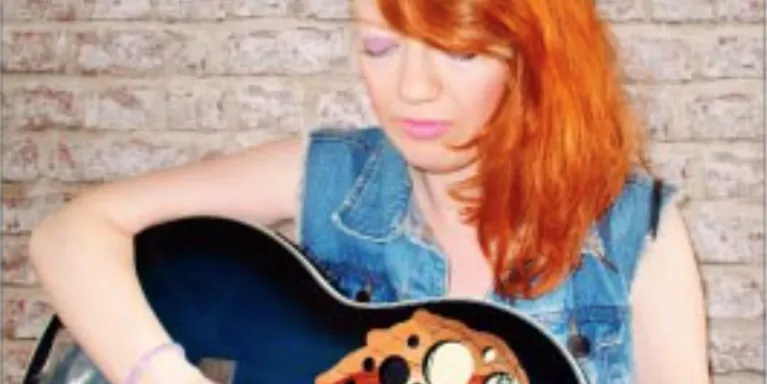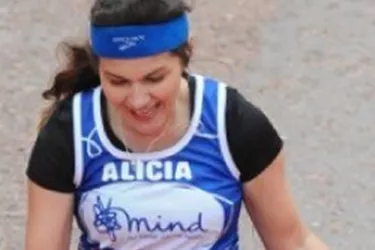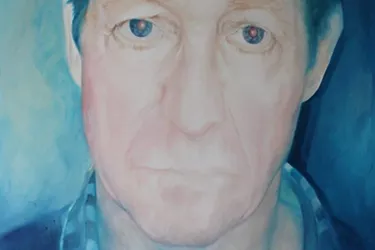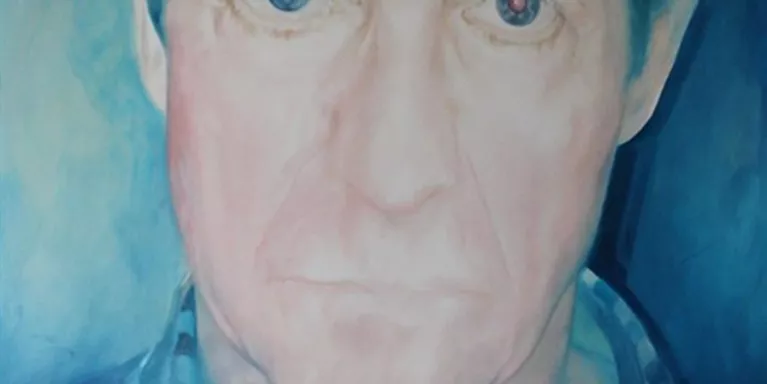Explaining depression to those who matter most
Zoe blogs about her experience of explaining depression to her partner.
Recently I was trying to explain to my partner what it was like to struggle with depression. He was finding it hard to understand. ‘But you look normal,’ he said. It’s true. I haven’t got a plaster cast on my leg, or a sling on my arm, or a bandage on my head. But I’m hurting all the same. Being physically ill or injured is acceptable in society yet being mentally ill is a silent hidden illness. It is seen as a sign of weakness by many and often still a taboo subject.
I have always been open and honest about my experiences, but I know plenty of people who have hidden their problems for months or years for fear of being judged. ‘But people think I’ve got it all,’ a friend confided in me recently, ‘I’ve got no reason to be depressed.’ But it’s not about how much you’ve got. It’s an illness and it doesn’t care who it gets. Granted some people can find there are moments which triggered their depression - a difficult family history, early experiences and loss. But there’s no set ‘type’. In fact it’s often the strongest ones who keep on going and care for others who ‘get bit’ the most.
For me, my first proper episode of depression struck after the birth of my second child. I was struggling with a toddler and a colicky baby. It was hard and I felt broken, I went sobbing to the doctors when he was four months old. His colic was better, but I was not. I felt like a rubbish mother, a failure and that life would never get better. I got prescribed three months’ supply of Prozac and that was all that I was offered at the time. Things gradually got better but it came back each winter. The feelings of hopelessness, worthlessness, wanting to hibernate, feeling like a failure and the snappiness and tearfulness that went with it.
My worst depression came during the breakup of my marriage three years ago. I hadn’t seen it coming and I was already depressed. This episode knocked me off my feet completely. I remember dark times of feeling completely alone, like a person on a cliff edge with the rocks crumbling around me into a stormy sea. I was drowning in despair and saw no light at the end of the tunnel for those darkest of weeks. My doctor helped me through the worst days saying that the medication was like ‘a life jacket keeping you afloat until the sea grew calmer.’ ‘You will get better,’ she said. I wanted to believe her but didn’t at the time. My world as I knew it was crumbling around me and I couldn’t even play with my children. I shut myself in my room, I didn’t want to see anyone.
Outside was noisy and scary and my appetite had vanished too. I lost half a stone in weight and thoughts of wanting to die went round and round my head. I told people this, but I don’t think anyone believed me. I eventually left one day, not knowing where I was going, I just drove. Then I got scared in my floods of tears, remembered my children at home with their Dad but without a Mum, and although I didn’t want to feel like this anymore, I didn’t want to die either, so I called the crisis team and an ambulance arrived.
It took some months to recover and move on, but I did. It takes time to rebuild your confidence and strength after such a bad experience. I was hoping I had seen the end of my depression, but I hadn’t, and it returned again this winter. Mildly at first but then in January I got bit badly, and I wasn’t prepared for it. I haven’t got time to be ill. I’m too busy. There are too many deadlines and too many people depend on me. I let things slip. I forgot I need to do regular exercise (I haven’t got time I told myself). I didn’t make time for friends (I’ve got to do this essay). I didn’t make time for relaxation (relaxation, what’s that?!)
I had started feeling anxious and tearful but ignored it. I took a herbal remedy and used a light box. I even had some counselling. ‘Relentless self-care’ was the message I ignored. It obviously wasn’t enough. Last week I broke down crying in work, over nothing really, an email. I locked myself in the toilet and shook. I couldn’t stop crying. I went home and felt exhausted and faint. And cried some more. I had blood tests as I was convinced I had anaemia. The results came back normal. I should have been happy but I was disappointed. I had pinned my hopes on it being a physical illness, one that could be remedied by taking iron or vitamin supplements. Instead I am stuck with the knowledge that it’s because of my mental health and I know I’ve got a lot of work to do to get better.
I have started on a different antidepressant. I’m gradually increasing the dosage to reduce the side effects but it won’t start to work for a few weeks. My friends are being supportive and when I’m with them, or my children, I don’t feel too bad, almost normal. But when I’m on my own the dark thoughts come back again and the fog of sadness and despair that saps me of energy and motivation.
It’s glorious sunshine outside but I’m sat inside my dark house trying to have a battle in my head about going out for a walk because it’s good for me. I’ve eaten a walnut whip for my lunch but can’t be bothered to make anything proper, even though I know it would be good for me. When I was well, and busy, I’d give anything for whole days to fill with fun things. Now I’m signed off work as I can’t concentrate and I find it hard to do the everyday tasks like keeping the house tidy and cooking proper meals. I keep a brave face most of the time for my children, trying hard not to scar them with my illness, already convinced I have damaged them with my depression in their infancy.
I think I have started to accept this as a disability that will bite me at times in my life if I do not take really good care of myself. And that I will need help at times to get through it. But I hope I don’t lose more people I love because of it, and that it doesn’t take away my dreams for the future or job aspirations. Ironically (or perhaps not) I am training to be a CBT therapist. I am hoping that my personal experience will help others gain control of their depression. That their black dogs can be trained so that they can still have fulfilling lives. So that they can be happy… As that’s what we all want really, isn’t it?
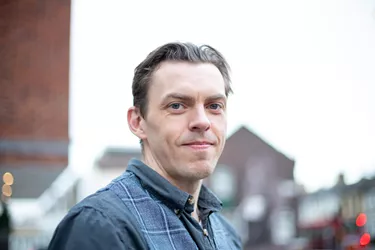

Information and support
When you’re living with a mental health problem, or supporting someone who is, having access to the right information - about a condition, treatment options, or practical issues - is vital. Visit our information pages to find out more.
Share your story with others
Blogs and stories can show that people with mental health problems are cared about, understood and listened to. We can use it to challenge the status quo and change attitudes.













